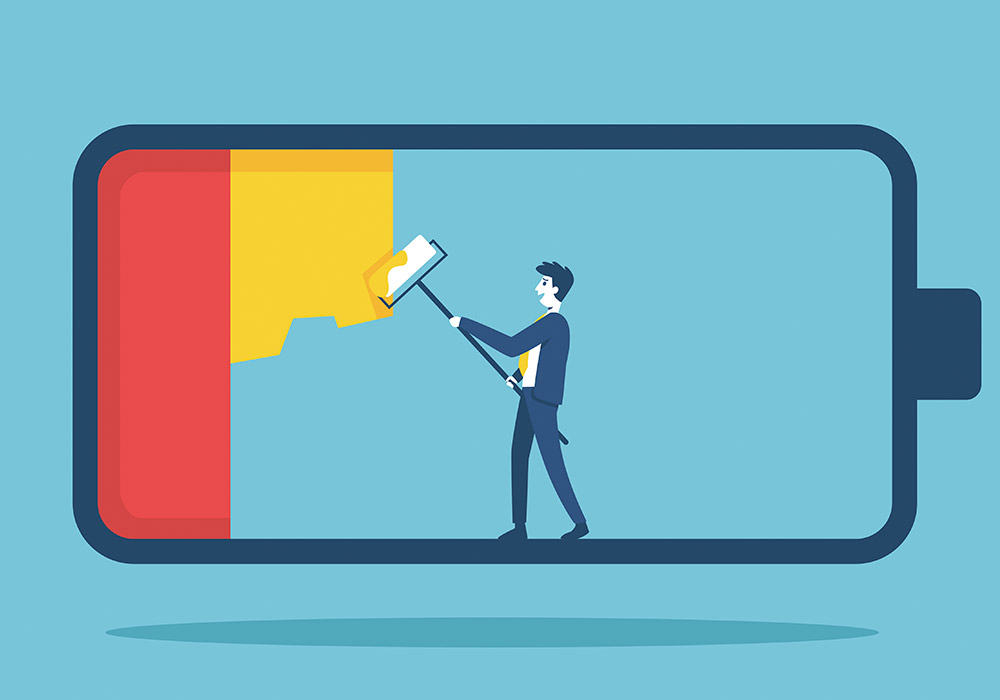Stopping and resting helps us to This study has found that when we most need to rest and recover – at times of extreme exhaustion – we’re least likely to take action to do so. This is known as the recovery paradox.
When work piles up and there are not enough hours in the day to get everything done: reports, meetings, calls, proposals, sales…, we start to scrape minutes from wherever we can. Instead of stopping for an hour for lunch, we devour a sandwich or any fast food in front of the screen. We miss our paddle tennis class, yoga or our visit to the gym to sit in front of the screen for longer. We even sacrifice hours of sleep to get up earlier and get ahead on a task.
“When we most need rest and recuperation – in times of extreme exhaustion – we are least likely to take steps to do so”.
What do we achieve by doing this? We accumulate exhaustion and diminish our performance. We work harder, but we work worse.
To overcome this paradox, experts recommend designing a custom-made recovery plan tailored to your preferences and needs. University of Lausanne (Switzerland) professors Alyson Meister, Nele Dael and Franciska Krings and University of Hong Kong HKU Business School MBA Director Bonnie Hayden Cheng point out 5 ways to make recovery work based on industry and research-based knowledge:
Disconnect to reconnect
Yes, it’s a hackneyed phrase, but it’s true. You get home, your mind is still working, going over details and worrying about deadlines. Instead of relaxing, you find yourself in a constant spiral of work overload. This is where the importance of mentally disconnecting from work comes in.
Spending time each day on an activity that’s not related to your work can be a way to avoid that temptation: spending an hour on nature photography, cooking a new recipe or simply reading a fascinating book. These shifts in focus allow the mind to free itself from work-related stress, recovering and recharging for the day ahead.
Micropauses: Small Breaths, Big Results
Studies indicate that micro-breaks – short breaks of about 10 minutes during the working day – can be effective in mitigating everyday stress and work overload.
Activities such as meditation, going out for a coffee or sharing an informal chat with a colleague can boost motivation and concentration, and keep energy levels high throughout the day.

